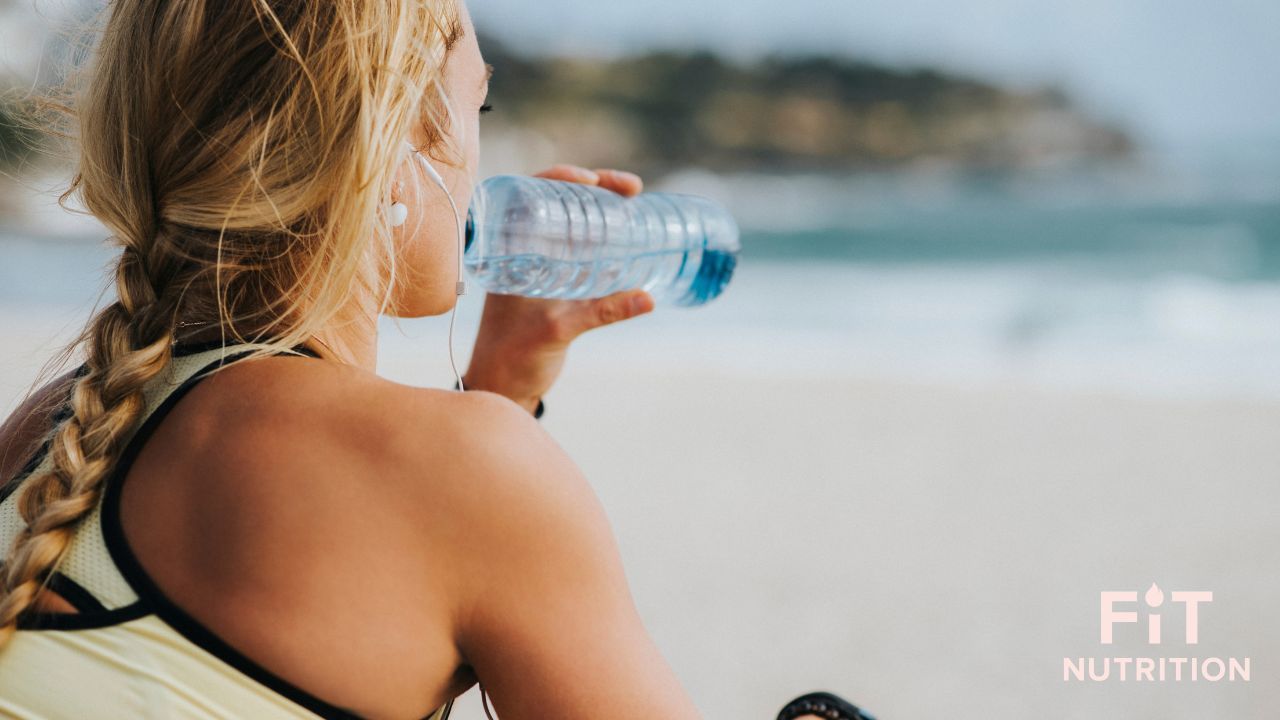HYDRATION & INFLAMMATION
Aug 08, 2025
Most women think hydration is simple. Just drink more water, right? But if that were true, more of us would already feel better, think clearly, and look less puffy. Hydration is about so much more than just how much water you drink. It’s about how well that water is absorbed, how it moves through your body, and whether it’s actually calming inflammation or making it worse.
Inflammation and dehydration go hand in hand. One drives the other. When you're inflamed, your cells become less efficient at pulling in the water they need. Your tissues swell, but your cells stay thirsty. That’s why so many women feel bloated and puffy but still have dry skin, joint pain, or brain fog. It’s not about more water, it’s about better hydration.
And just like our other health plates, menopause makes staying hydrated more complicated. Estrogen helps regulate fluid balance in the body. As it declines, your ability to retain water inside the cells decreases. You start to notice things like dry eyes, dry skin, brittle hair, or that awful afternoon crash where your brain just stops cooperating. That’s not just hormones, it’s hydration.
Your cells rely on water to deliver nutrients, carry away waste, and keep every single process in your body running smoothly. That includes digestion, hormone production, energy metabolism, and detoxification. Without enough water, or the right kind of hydration, those systems slow down. Waste lingers. Blood thickens. The lymphatic system gets sluggish. Toxins recirculate. Inflammation builds. And then you start to feel it. More joint pain, more fatigue, more cravings, more puffiness, and even more hot flashes.
Yes, hydration affects your hot flashes too. When your system is dehydrated and inflamed, temperature regulation becomes erratic. That means your internal thermostat can swing wildly, which is why some women feel like they’re burning from the inside out at 2 a.m. Even mild dehydration can make symptoms worse, because your body is struggling to cool itself efficiently. Like your car overheating in summer when there's not enough fluid in the radiator.
The other thing no one talks about is electrolyte balance. If you're drinking tons of water but not getting enough minerals, especially sodium, potassium, and magnesium, you’re actually diluting your system. That leads to more inflammation, more fatigue, and worse blood sugar crashes. Hydration isn’t just about volume, it’s about balance.
Again, it’s not just about drinking water. It’s about hydrating smarter. That starts with adding minerals back into your routine, either through real food like sea salt, leafy greens, avocados, berries, and bone broth, or with targeted electrolyte support. It also means spacing water throughout your day, rather than chugging a bottle once you're already parched. And it means minimizing your caffeine, alcohol, and sugar intake, all of which dehydrate the body and fuel inflammation. Think more water, more often throughout the day than any other liquid.
You also want to pay attention to when and how you hydrate. Starting your day with water before coffee is a game-changer. Sipping water during meals, rather than guzzling after, helps with digestion and reduces bloating. Adding a pinch of salt and/or a squeeze of lemon to your water helps with absorption. And if you’re exercising or sweating more, you need even more support.
Inflammation also thickens the blood, which makes it harder to circulate nutrients and oxygen. That’s partly why some women feel tired, dizzy, or foggy even when they’re eating well. Without adequate hydration, your heart and liver are working overtime to move things around and your lymphatic system, which is crucial for clearing out inflammatory waste, slows to a crawl. Hydration helps everything flow. It’s not sexy, but it is essential.
Many of the symptoms women attribute to hormones are really a combination of inflammation and dehydration. Headaches, fatigue, constipation, sugar cravings, poor sleep, muscle cramps, and even irritability often start with hydration. You’re not broken. You’re likely just dry on the inside and inflamed on top of it.
The good news is that hydration is one of the fastest wins you can get. Women in my programs are always shocked at how quickly their energy improves, their puffiness goes down, and their cravings fade once they start hydrating strategically. They sleep better. They think more clearly. They even lose weight. It's not because water is magic, but because their systems are finally working again.
It’s not about being perfect. It’s about consistently doing the small things that have a big impact. Hydration is one of them. Especially in menopause, when everything feels like it’s changing, water is one of the simplest, most powerful ways to support your body. But only if you do it right.
If you want your metabolism to work, your gut to heal, your skin to glow, and your hormones to stop screaming, hydration has to become a non-negotiable. Not just any water—but the right kind, at the right time, with the right support.
You don’t need a cleanse or a detox. You probably just need to start with a glass of water that actually works with your body, not against it.
Watch my free video to learn how to reduce inflammation and restore hormone balance, starting with what’s on your plate and in your glass.

